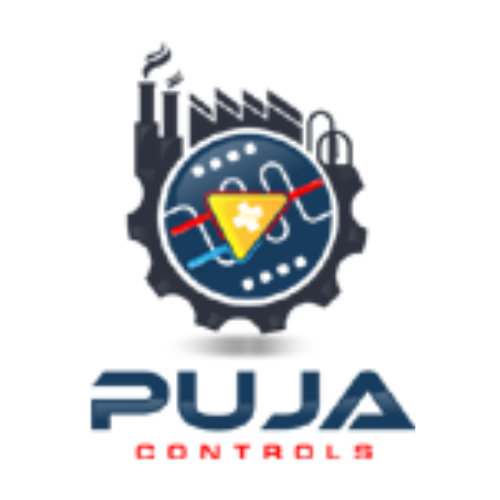In today’s rapidly evolving industrial landscape, the demand for efficiency, productivity, and precision has never been higher. Industrial automation solutions have emerged as a pivotal tool for businesses seeking to streamline their operations and stay competitive in the market. From robotic automation to advanced data analytics, these solutions encompass a wide array of technologies designed to optimize manufacturing and production processes.
What is industrial automation?
Industrial automation involves merging control systems, like computers or robots, with information technologies to oversee various processes and machinery within an industry, effectively minimizing the need for human involvement.
Importance of automation in industries
Automation plays a crucial role in modern industries by offering several benefits, including increased productivity, reduced labor costs, and improved product quality. By automating repetitive tasks and processes, businesses can achieve higher levels of output while maintaining consistency and precision.
Types of Industrial Automation Solutions
1) Robotic Automation
Robotic automation involves the use of robotic systems to perform tasks traditionally carried out by humans. These robots can handle complex operations with speed and accuracy, making them ideal for tasks such as assembly, packaging, and material handling.
2) Programmable Logic Controllers (PLCs)
PLCs are specialized computers used to control industrial machinery and processes. They can be programmed to execute specific tasks, monitor inputs, and make real-time adjustments, providing a flexible and reliable solution for automation.
3) Industrial Internet of Things (IIoT)
IIoT refers to the network of interconnected devices, sensors, and software used to collect and exchange data in industrial environments. By leveraging IIoT technologies, businesses can gather valuable insights, optimize performance, and enable predictive maintenance.
4) Machine Vision Systems
Machine vision systems utilize cameras and image processing algorithms to inspect, analyze, and guide the production process. These systems can detect defects, measure dimensions, and ensure product quality with high accuracy and efficiency.
Benefits of Industrial Automation Solutions
1) Increased productivity
Automation streamlines processes and eliminates bottlenecks, leading to higher production rates and faster turnaround times.
2) Cost reduction
By minimizing manual labor and optimizing resource usage, industrial automation solutions help businesses lower operational costs and improve profitability.
3) Improved safety
Automating hazardous tasks and implementing safety protocols enhances workplace safety and reduces the risk of accidents and injuries.
4) Quality control
Automation ensures consistency and precision in manufacturing processes, resulting in higher product quality and customer satisfaction.
Challenges and Considerations in Implementing Industrial Automation
Despite its numerous benefits, implementing industrial automation solutions poses certain challenges and considerations for businesses.
1) Initial investment
The upfront costs associated with acquiring and deploying automation technologies can be significant, requiring careful financial planning and analysis.
2) Workforce retraining
Introducing automation may necessitate retraining existing employees or hiring specialized personnel to operate and maintain the new systems effectively.
3) Integration with existing systems
Integrating automation solutions with legacy systems and equipment can pose compatibility issues and require thorough testing and validation.
Case Studies of Successful Implementation
Automotive industry
Automakers have embraced automation to optimize production lines, improve efficiency, and meet increasing consumer demands for quality and customization.
Manufacturing sector
Manufacturers across various industries, from electronics to pharmaceuticals, have adopted automation to enhance productivity, reduce lead times, and adapt to changing market dynamics.
Food and beverage industry
Food processing plants utilize automation to streamline packaging, labeling, and quality control processes, ensuring compliance with regulatory standards and maintaining product freshness.
Future Trends in Industrial Automation
Artificial Intelligence (AI) in automation
AI technologies, such as machine learning and natural language processing, are revolutionizing industrial automation by enabling autonomous decision-making and predictive analytics.
Predictive maintenance
Also, by leveraging sensor data and predictive algorithms, businesses can anticipate equipment failures, schedule maintenance proactively, and minimize downtime.
Collaborative robots (cobots)
Cobots are designed to work alongside human operators, enhancing productivity and safety by automating repetitive or physically demanding tasks while allowing for human oversight and intervention.
Conclusion
Industrial automation solutions represent a transformative force in modern industries, offering unparalleled efficiency, precision, and flexibility, furthermore by embracing automation technologies, businesses can unlock new opportunities for growth, innovation, and competitiveness in the global marketplace.
FAQs on Industrial Automation Solutions
1) What industries can benefit from industrial automation solutions?
Industrial automation solutions are applicable across various sectors, including manufacturing, automotive, aerospace, pharmaceuticals, and logistics.
2) How can small businesses afford industrial automation solutions?
Small businesses can explore affordable automation options, such as modular systems or cloud-based platforms, and consider leasing or financing arrangements to spread out the cost over time.
3) Are industrial automation solutions customizable to specific business needs?
Yes, industrial automation solutions can be tailored to accommodate unique process requirements, scalability goals, and budget constraints.
4) What are the environmental implications of industrial automation?
Industrial automation can contribute to sustainability efforts by optimizing resource usage, reducing waste, and minimizing energy consumption through efficient operations.
5) How can businesses justify the investment in industrial automation solutions?
Businesses can quantify the return on investment (ROI) of automation by evaluating factors such as labor savings, productivity gains, error reduction, and competitive advantages in the market.

